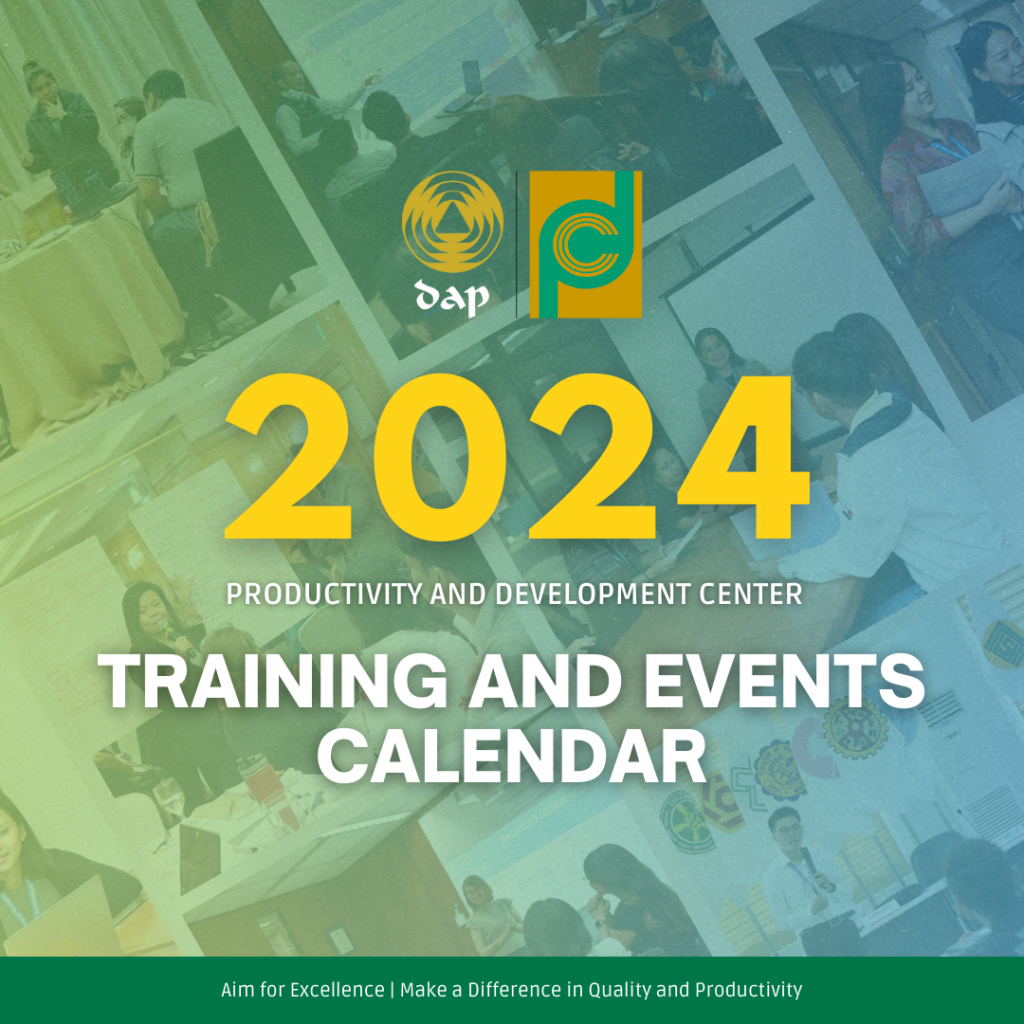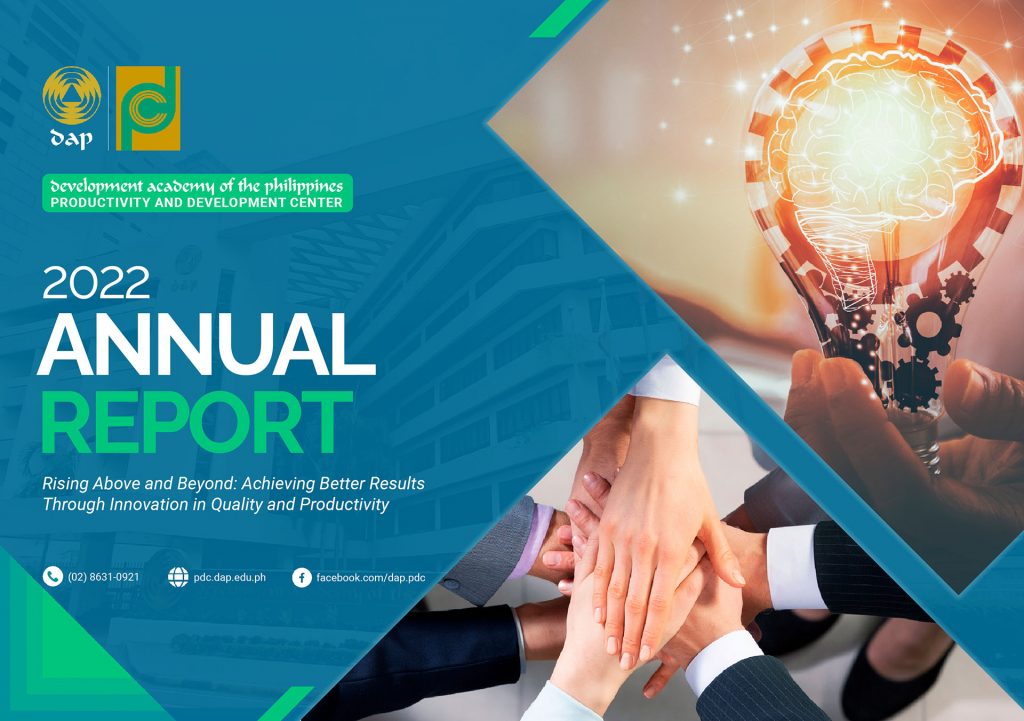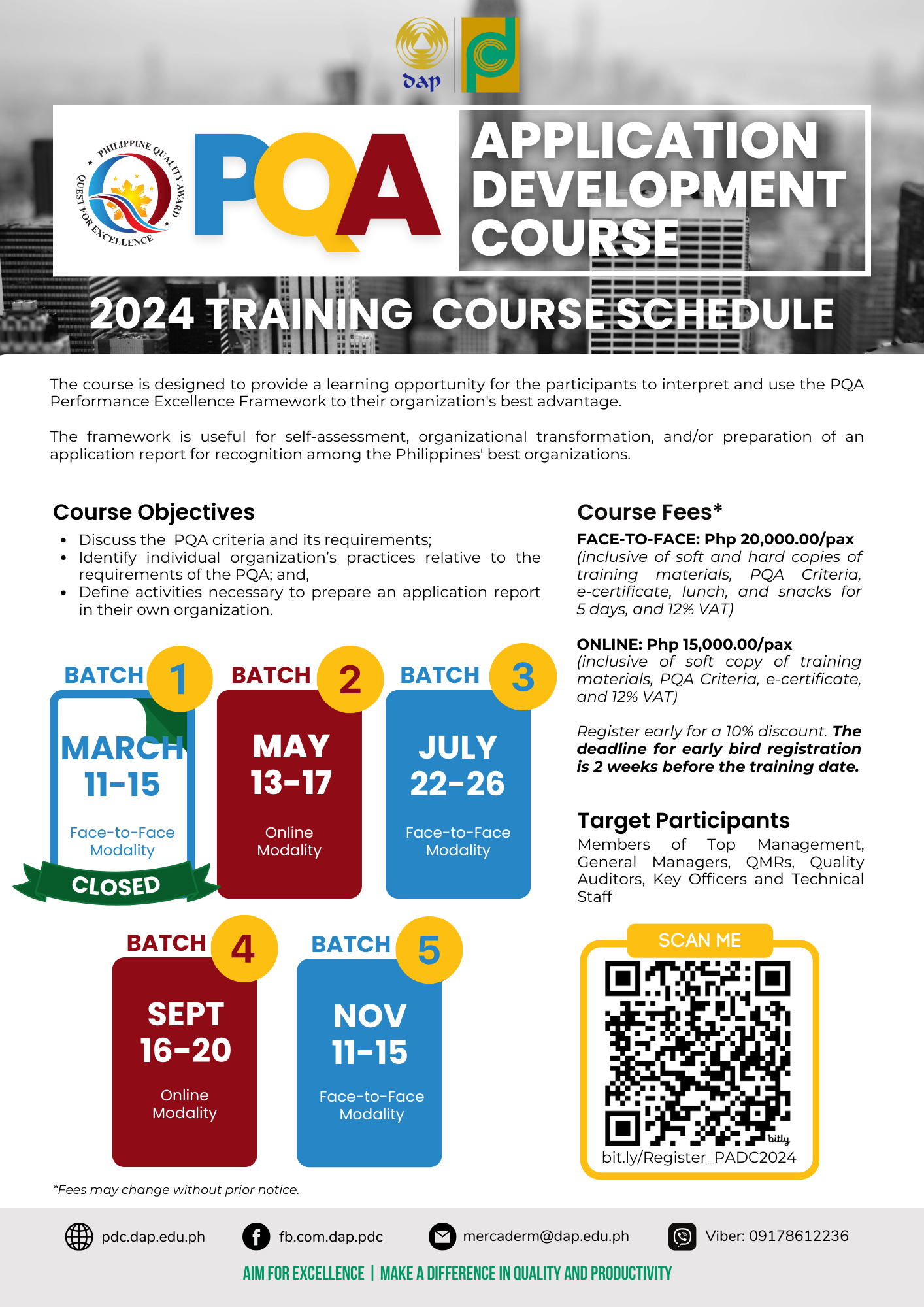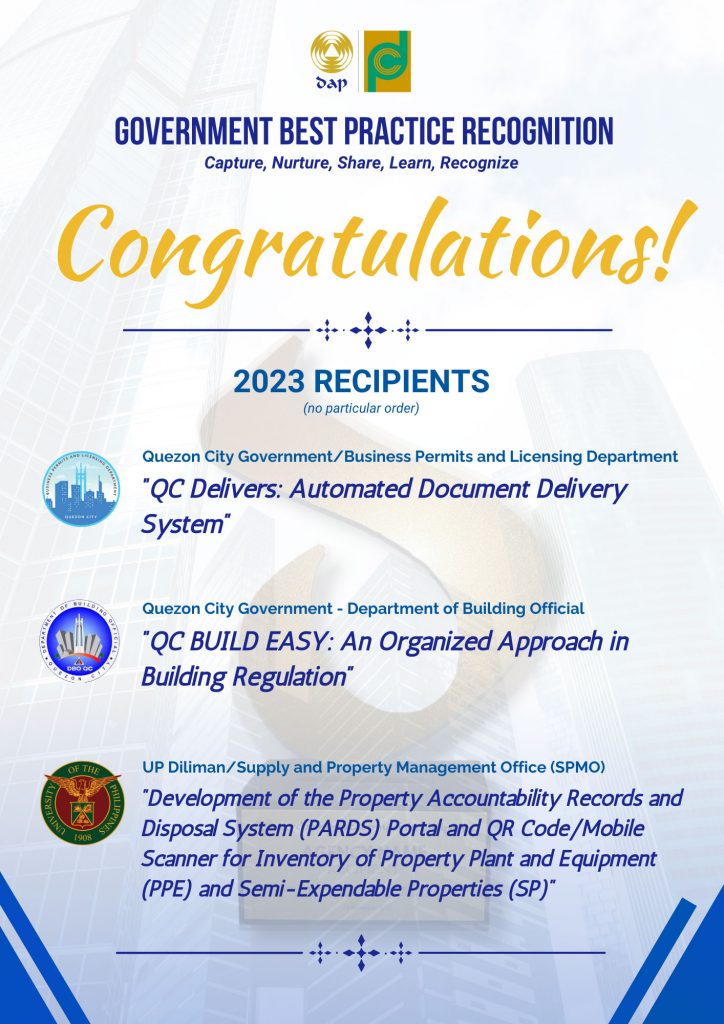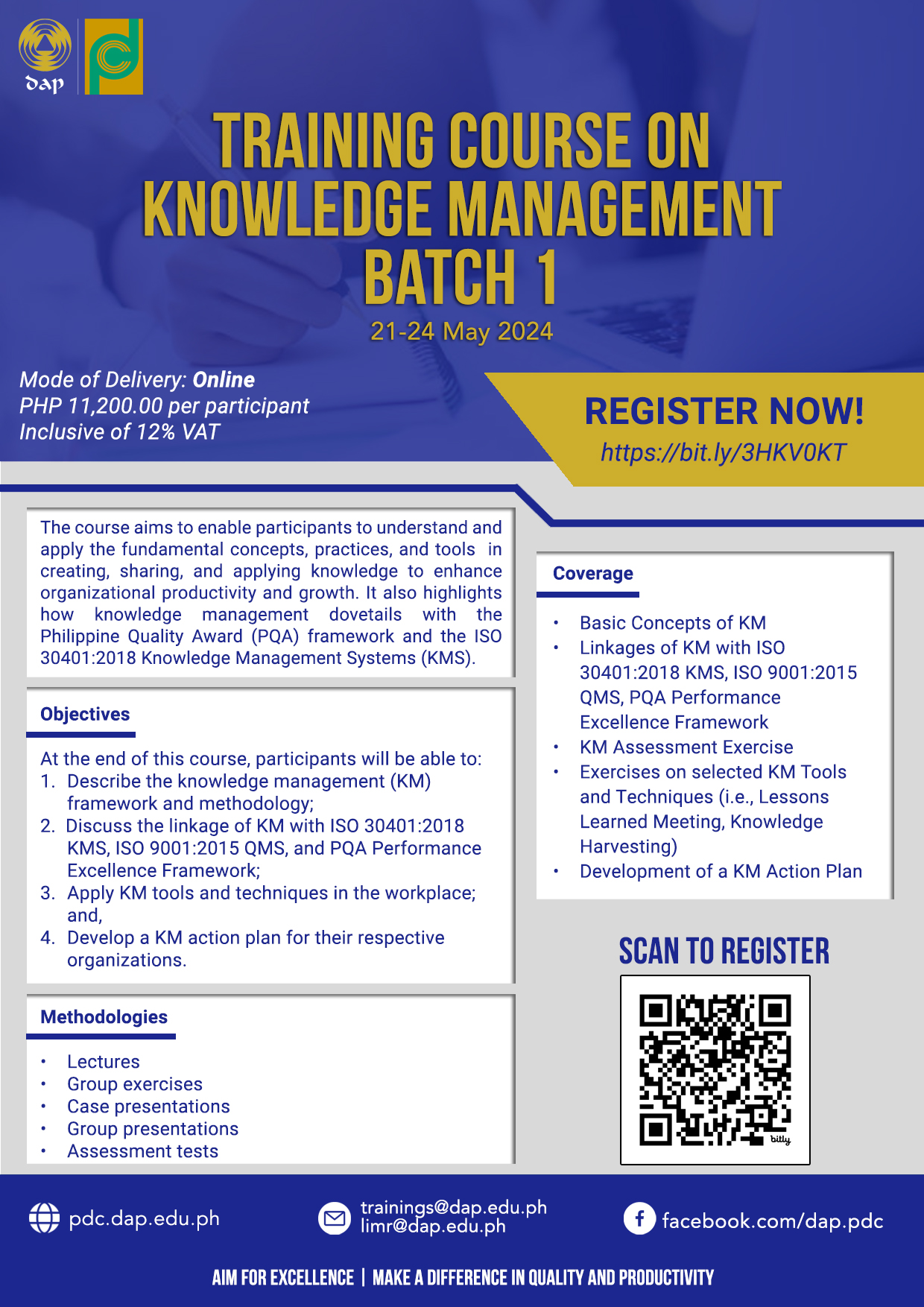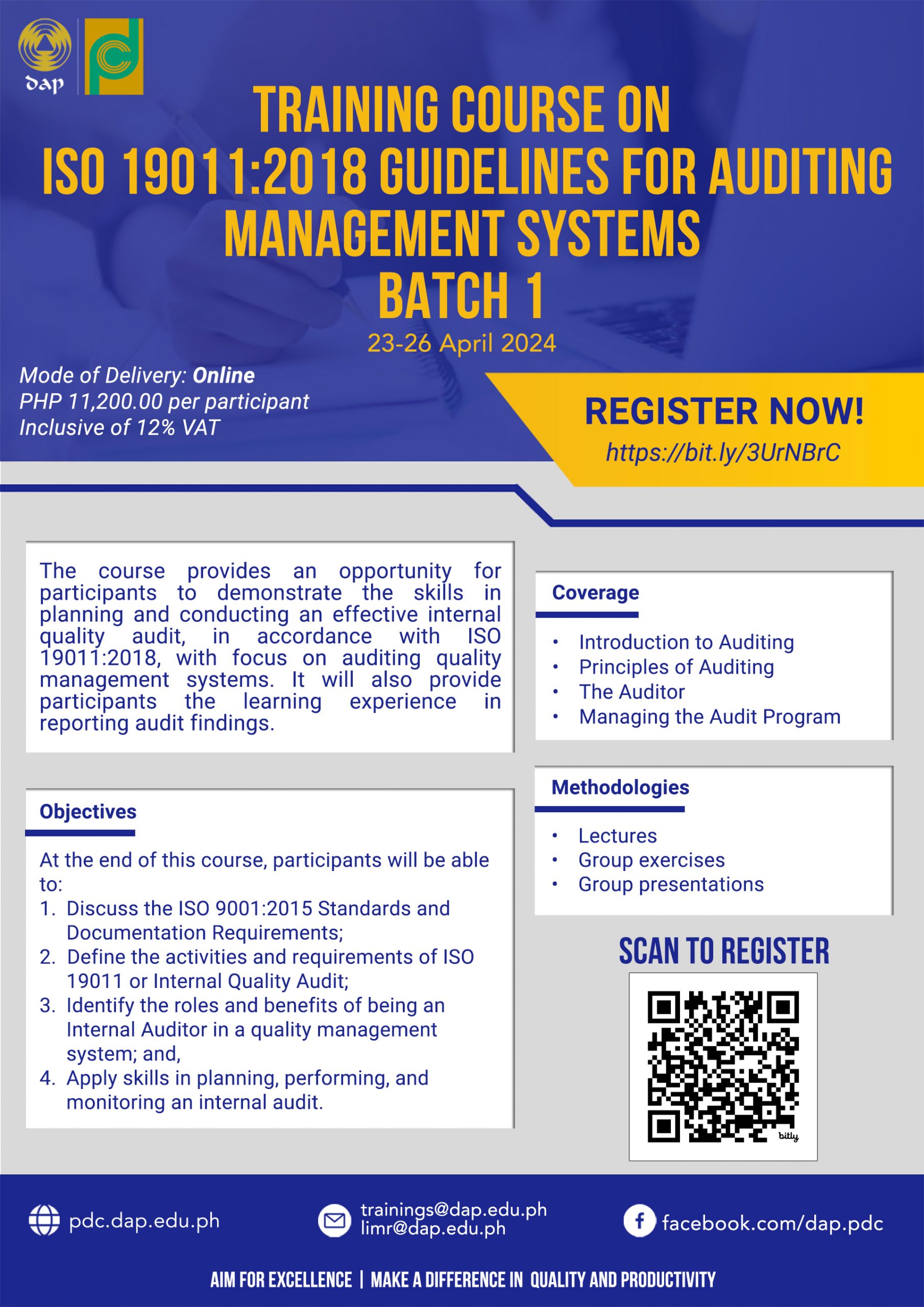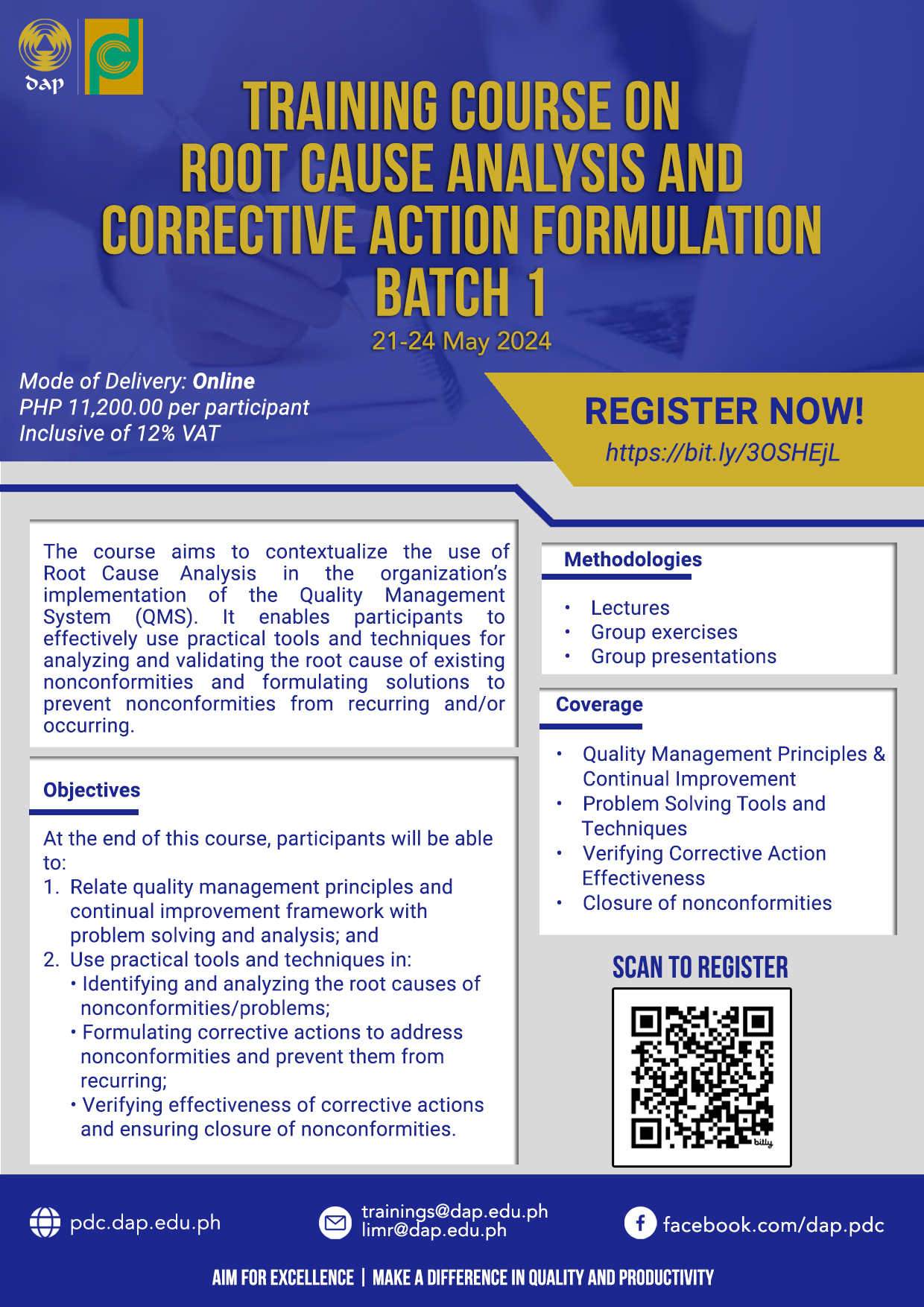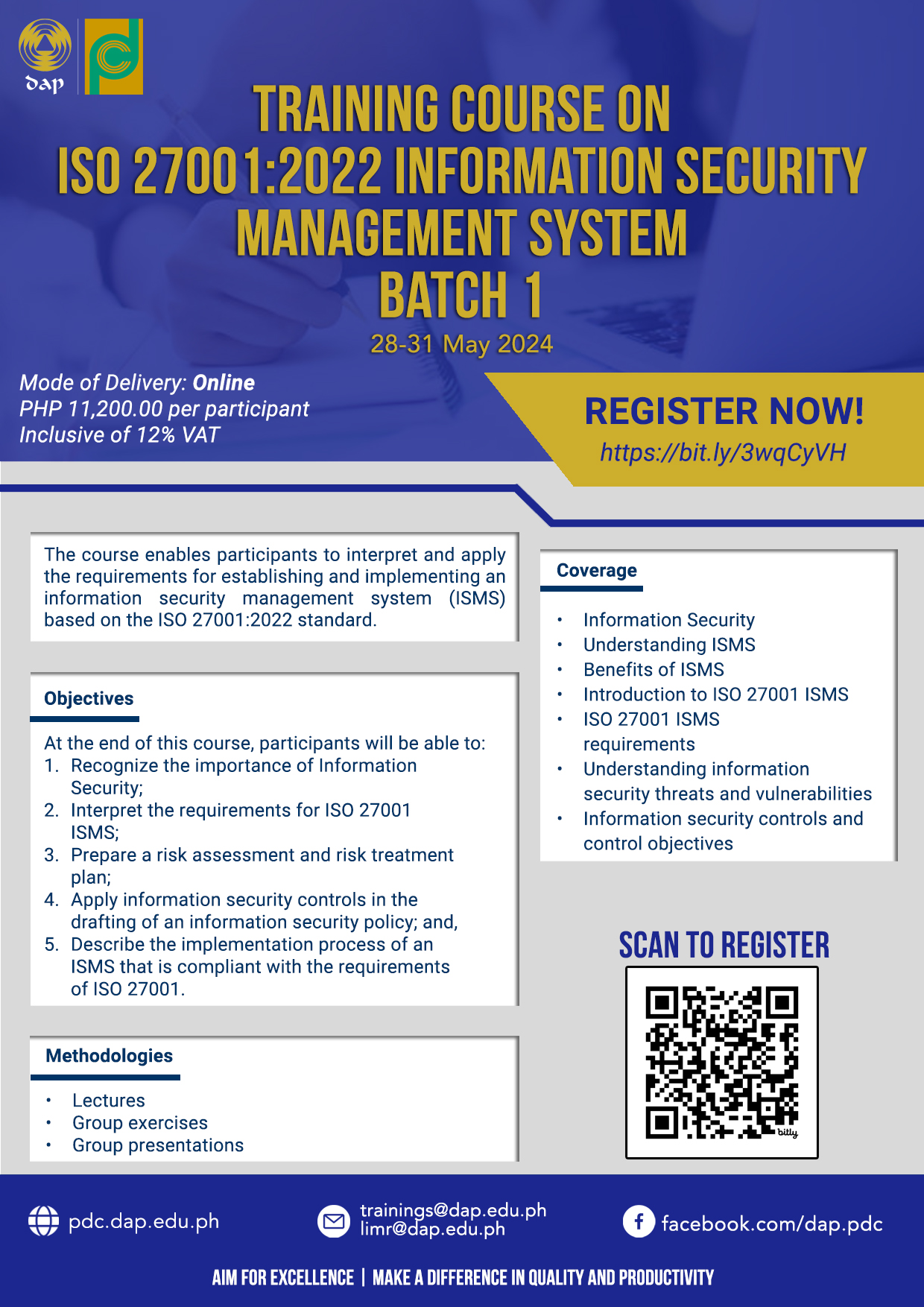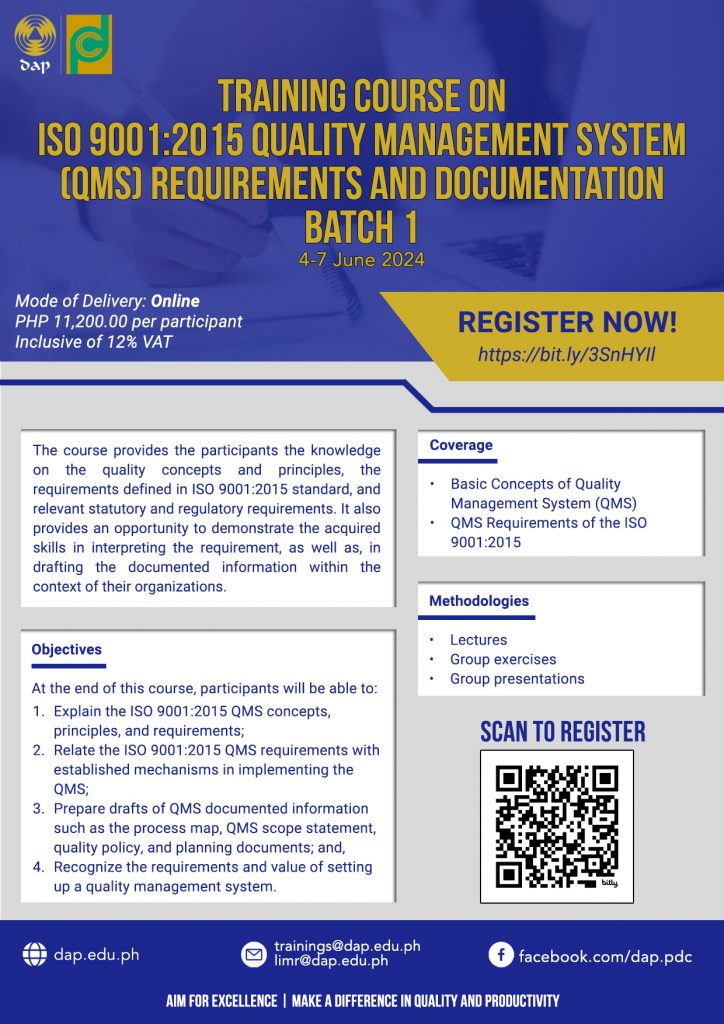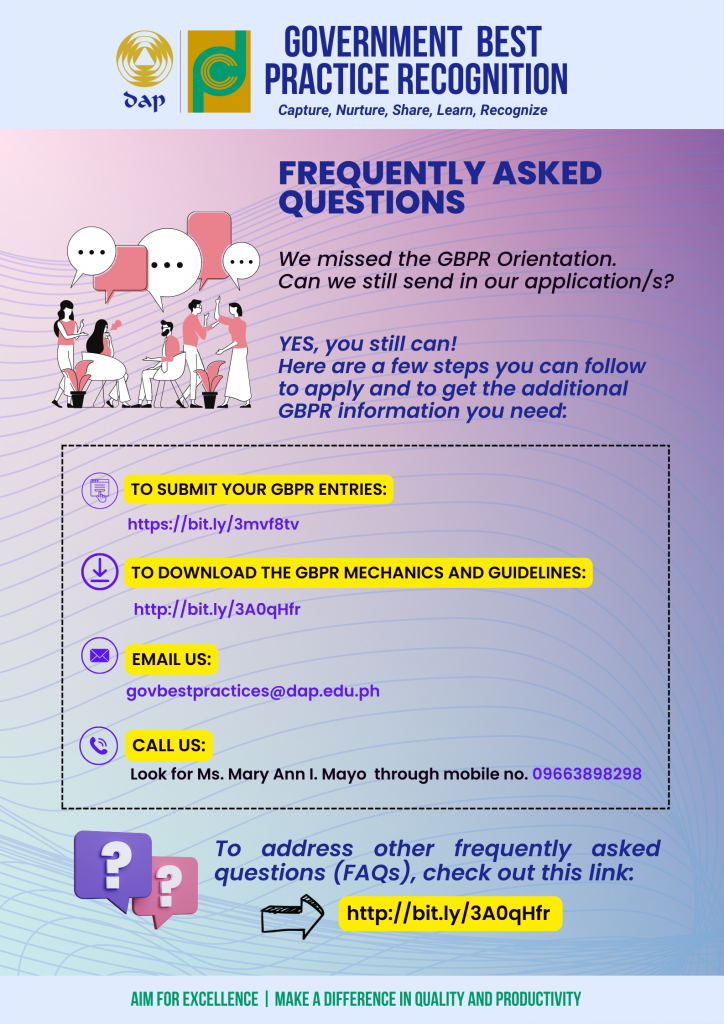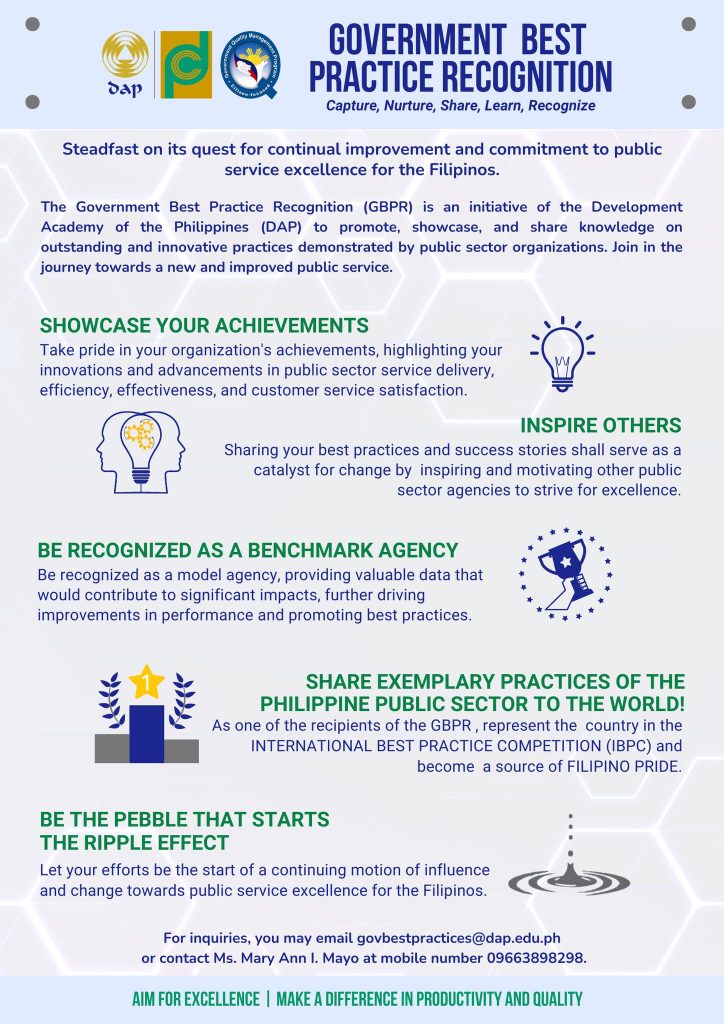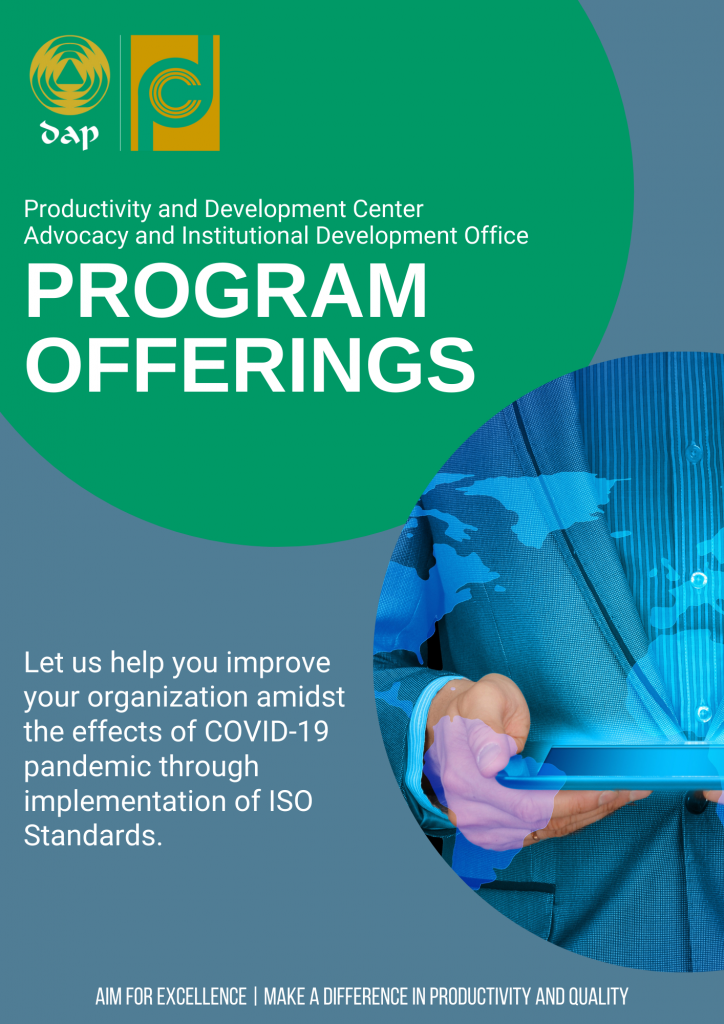Regulatory Impact Assessment (RIA), as required by the Republic Act 11032 or the Ease of Doing Business and Efficient Government Service Delivery Act of 2018, allows for the improvement of regulatory quality and coherence and, as a result, government efficiency, effectiveness, transparency, and accountability. Crucial to the success of large-scale, long term regulatory reform programs, it systematically identifies and assesses the perceived costs, benefits, and associated risks of regulations.
It is with this goal in mind that the MGR Program designed and developed trainings on RIA. RIA is a systematic approach that critically measures the expected positive and negative effects of proposed and existing regulations through a rigorous, well-defined, and evidence-based analysis. The MGR Program conducts the following RIA-related trainings.
| Course | Description | Target Participants | Course Fee |
| Masterclass on Regulatory Impact Assessment (RIA) | Provides introductory lecture and discussion on the basic concepts and techniques in developing regulations through a well-defined and evidence-based analysis that is RIA. | Regulation authorities (officers, directors, and key technical staff) of local government units, national government agencies, line and staff bureaus, government owned and controlled corporations, and the legislative. | As per submitted project proposal |
| Foundation Course on Regulatory Impact Assessment (RIA) | Provides introductory lecture and discussion on the basic concepts and techniques in developing regulations through a well-defined and evidence-based analysis that is RIA. | Regulation authorities (officers, directors, and key technical staff) of local government units, national government agencies, line and staff bureaus, government owned and controlled corporations, and the legislative. | As per submitted project proposal |
| Basic Course on Regulatory Impact Assessment (RIA) | Discusses the importance of RIA in developing new and evaluating existing regulations, determines the roles and responsibilities of regulators, and identifies the processes in the conduct of RIA. | Regulation authorities (officers, directors, and key technical staff) of local government units, national government agencies, line and staff bureaus, government owned and controlled corporations, and the legislative. | ● Free (admission subject to submission of documentary requirements and evaluation of DAP) ● As per submitted project proposal |
| Advanced Course on Regulatory Impact Assessment (RIA) | Caters to the need of clients to undertake a more focused coaching and workshop on RIA by performing a more detailed RIA on identified regulations using various analytical methods. Prerequisite: Basic Course on RIA | Regulation authorities (officers, directors, and key technical staff) of local government units, national government agencies, line and staff bureaus, government owned and controlled corporations, and the legislative. | ● Free (admission subject to submission of documentary requirements and evaluation of DAP) ● As per submitted project proposal |
| Training Course on Regulatory Cost Compliance Assessment (CCA): Regulatory Cost Model (RCM) | Aims to support RIA practice by considering costs associated with regulatory compliance such as administrative burdens, substantive compliance costs, administration and enforcement costs, and direct financial costs through the DAP-developed RCM. Prerequisite: Basic Course on RIA | Regulation authorities (officers, directors, and key technical staff) of local government units, national government agencies, line and staff bureaus, government owned and controlled corporations, and the legislative. | ● Free (admission subject to submission of documentary requirements and evaluation of DAP) ● As per submitted project proposal |
| Seminar on Consultations in RIA | Discusses principles and conditions underpinning effective conduct of consultations in regulation-making. | Regulation authorities (officers, directors, and key technical staff) of local government units, national government agencies, line and staff bureaus, government owned and controlled corporations, and the legislative. | ● Free (admission subject to submission of documentary requirements and evaluation of DAP) ● As per submitted project proposal |

